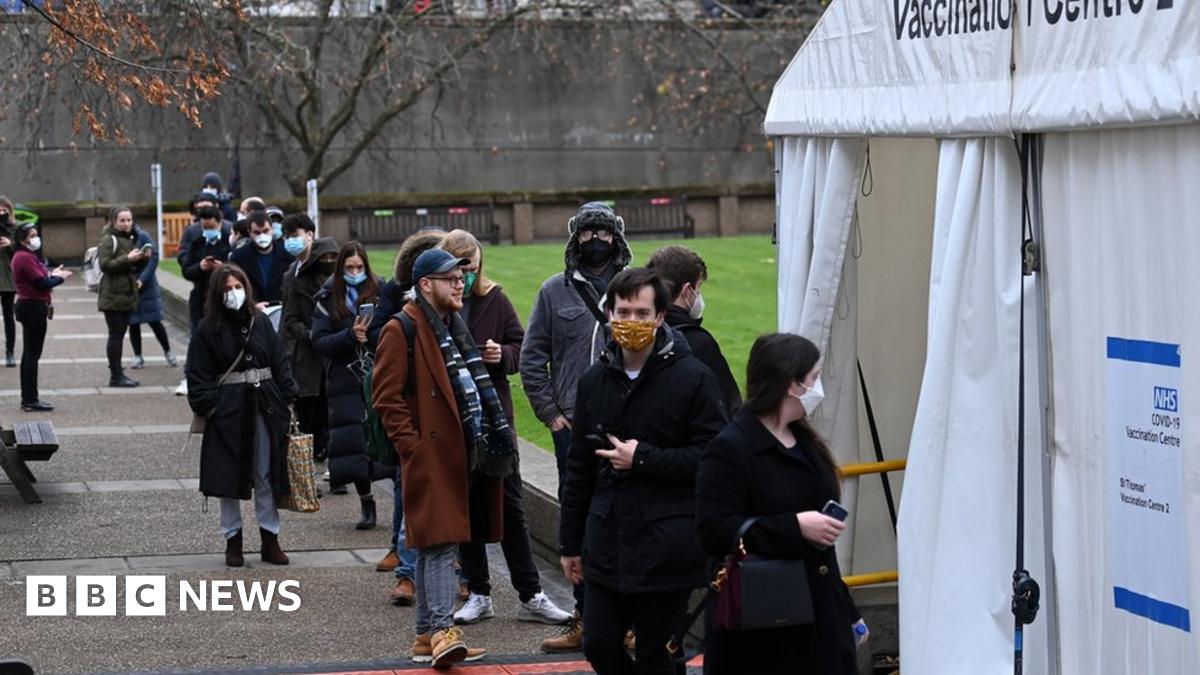More news coming out of South Africa which is promising
Of course direct comparisons between South Africa and the UK are not easy due to major differences in the populations vaccination status and the age profile. We have a much higher proportion of our population vaccinated but this is a virus which disproportionately affects elderly people; we have many times more older people than South Africa does.
But it does sound promising.
A key point to remember is that a vaccinated individual exposed to Omicron is more likely to develop an infection compared to a vaccinated individual exposed to Delta, but this must NOT be seen as a failing of the vaccine as the vaccines remain highly effective at what they are intended to do, which is is to protect against serious illness. An infection in a vaccinated person with Omicron is likely to be mild.
The Government needs to axe the requirement for contacts of people who test positive for Omicron to isolate; if this is not done, and the likely predictions come true, our biggest problem will be a lack of workers to keep places open!
Gauteng, South Africa has peaked with case levels similar to Delta, but with deaths expected to be 25 times lower.
Mild, milder, extremely mild. As disease severity increases, the gap with Delta widens. Keep in mind that SA is extremely vulnerable to C-19 with an average IFR of 0.5%, and 230,000 excess deaths attributable to the virus. The IFR of #Omicron is estimated at 0.053%.
Gauteng cases have peaked already, and there is only a slight uptick in C-19 deaths. Total confirmed C-19 deaths from #Omicron is estimated at 640 for this wave. Gauteng had 15,400 confirmed C-19 deaths from Delta.
SA 1st wave - CFR ~4% ~20% infected. SA 2nd wave (Beta) - CFR ~4% ~45% infected. SA 3rd wave (Delta) - CFR ~3% ~70% infected. #Omicron - CFR ~0.42% ~80% infected (some reinfections) It is highly unlikely that the 7x drop in CFR is attributable to prior immunity.
Cases peaked 3 days earlier than expected. Hospital beds, ICU beds and ventilated beds are all tracking the projections reasonably well. I have now added a projection for deaths as well.
#Omicron is extremely mild. The rest of the world has nothing to fear. SA has high natural immunity levels (70%+) and low vaccination rates (25% of the population and 60% of 50+ are fully vaccinated).
Of course direct comparisons between South Africa and the UK are not easy due to major differences in the populations vaccination status and the age profile. We have a much higher proportion of our population vaccinated but this is a virus which disproportionately affects elderly people; we have many times more older people than South Africa does.
But it does sound promising.
A key point to remember is that a vaccinated individual exposed to Omicron is more likely to develop an infection compared to a vaccinated individual exposed to Delta, but this must NOT be seen as a failing of the vaccine as the vaccines remain highly effective at what they are intended to do, which is is to protect against serious illness. An infection in a vaccinated person with Omicron is likely to be mild.
The Government needs to axe the requirement for contacts of people who test positive for Omicron to isolate; if this is not done, and the likely predictions come true, our biggest problem will be a lack of workers to keep places open!

